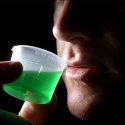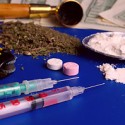What Is Alcoholic Liver Disease? What Is Alcoholic Hepatitis?
Alcoholic liver disease, also called alcoholic hepatitis, refers to a range of conditions and related symptoms that develop when the liver becomes damaged due to excessive intake of alcohol. While distinct from cirrhosis, alcoholic hepatitis is regarded as the earliest stage of alcoholic liver disease. Alcohol has long been associated with serious liver diseases such as hepatitis which is an inflammation of the liver.
According to Medilexicon’s medical dictionary:
Hepatitis is “Inflammation of the liver, due usually to viral infection but sometimes to toxic agents.”
However, not all heavy drinkers develop alcoholic hepatitis. The disease can occur in people who drink only moderately or binge just once.
Damage from alcoholic hepatitis can often be reversed by stopping drinking. The disease is likely to progress to cirrhosis and liver failure if alcohol dinking continues.
The precise explanation of why alcoholic hepatitis develops is not clear. A person who has alcoholic hepatitis needs to avoid alcohol and other substances that can harm the liver. For some people with severe liver damage, a liver transplant may be an option.
Alcoholic liver disease does not usually cause any symptoms until the liver has been extensively damaged. When this happens, alcoholic liver disease can cause:
- jaundice (yellowing of the eyes and skin)
- loss of appetite
- nausea
- weight loss
The liver
The liver is a complex organ in the body with more than 500 functions, most of which essential for living.
The functions of the liver include:
- filtering toxins from the blood
- helping to fight infection and disease
- producing blood-clotting agents that prevent excessive bleeding
- producing important chemicals, such as proteins and hormones
- regulating cholesterol levels in the blood
- storing energy for use when the body needs an immediate energy boost
Alcohol
The liver is a very tough and resilient organ, capable of regenerating itself. Despite this resilience, prolonged alcohol misuse over many years can damage the liver.
When there is alcohol intake, the liver filters out the poisonous alcohol from the blood.
Each time the liver filters alcohol, some of the liver cells die. The liver can regenerate new cells. But after heavy drinking, for many years, the liver will lose its ability to regenerate new cells, causing serious damage.
Stages in alcoholic liver disease
Alcoholic fatty liver disease: It is the first stage of alcoholic liver disease. Heavy consumption of alcohol, even for only a few days, can lead to a build-up of fatty acids in the liver. Fatty liver disease rarely causes any symptoms but it is an important warning sign that the current drinking level is harmful to the health. Fatty liver disease is reversible.
After stopping drinking alcohol for two weeks, the liver should return to normal.
Alcoholic hepatitis: It is the second more serious stage of alcoholic liver disease. Extended alcohol misuse over many years can cause the tissues of the liver to become inflamed. This is known as alcoholic hepatitis. In some rare cases, alcoholic hepatitis can occur after drinking a large amount of alcohol in a short period of time (binge drinking).
Alcoholic hepatitis is usually reversible by stopping alcohol consumption for several months or years.
Cirrhosis: It is the final stage of alcoholic liver disease. Cirrhosis occurs when prolonged inflammation of the liver has caused scarring of the liver and subsequent loss of function. Loss of liver function can result in death.
The damage caused by cirrhosis is not reversible. In mild to moderate cases, stopping drinking alcohol immediately can prevent further damage. Gradual recovery of the liver function can be achieved. In more severe cases, a liver transplant may be required.
A heavy drinker is someone who regularly exceeds the recommended weekly limit for alcohol consumption. This is 3 to 4 units of alcohol a day for men and 2 to 3 units for women.
Women who regularly drink more than 6 units of alcohol a day (or more than 35 units a week) and men who regularly drink more than 8 units a day (or 50 units a week) are at the highest risk of alcohol-related harm.
Women are more likely to develop alcoholic liver disease but men are more likely to die from it, possibly because men tend to be heavier drinkers.
Death rates linked to alcoholic liver disease have risen by over 69 percent in the last 30 years. This makes alcohol one of the most common causes of death, along with smoking and high blood pressure.
Fatty liver disease and hepatitis can develop at any age. Cirrhosis usually develops in people aged 40 or over.
The outlook for alcoholic liver disease depends on whether the patient is willing to stop drinking alcohol.
source: Medical News Today

